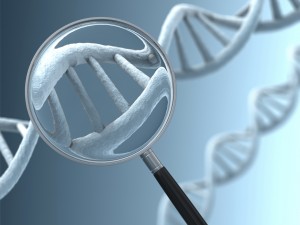
You have probably heard stories of life saving bone marrow donors making a contribution to someone else’s life, literally. For those in need of a bone marrow transplant, bone marrow donation from family or strangers is something they rely on to save their lives. When someone is ill and in need of a bone marrow transplant family and friends often offer to donate bone marrow but because it is a complicated matching process, family and friends may not be eligible to donate directly to the patient. This means that the patient must then rely on finding a match from registered donors. But, when someone is sick , time is of the essence and the longer time goes on, the more ill a patient becomes. If a match is not found, a patient could succumb to their disease. This is incredibly upsetting when considering the amount of people that could possibly donate bone marrow that could be a match. Being a bone marrow donor is no small undertaking though and the decision to be one should not be entered into lightly. Many may hear stories of people in need of a bone marrow donor match and want to rush right out to join the registry but it is wise to be fully informed before making the decision.
Cancer patients in need of a bone marrow transplant may be age, from babies to adults. A bone marrow transplant will literally give them a new lease on life. Those interested in bone marrow donation should be sure they are willing to not only be on the registry but actually go through with donation including preparation time and recovery time before joining so as not to get patient hope up falsely if a match is made. Be The Match describes how bone marrow match is determined, how likely it is once you have joined the registry that you will be matched with someone, as well as what kind of commitment to expect if you are matched, “Doctors look for a donor who matches their patient’s tissue type, specifically their human leukocyte antigen (HLA) tissue type. HLAs are proteins — or markers — found on most cells in your body. Your immune system uses these markers to recognize which cells belong in your body and which do not. The closer the match between the patient’s HLA markers and yours, the better for the patient… On average, about 1 in 540 U.S. Be The Match Registry members will go on to donate bone marrow or peripheral blood stem cells (PBSC) to a patient. Because of the vast variation in tissue types, we can’t predict an individual registry member’s chance of donating to a patient. If you have a relatively common tissue type, you might be one of many who could match a searching patient. If you have an uncommon tissue type, you may never match a patient, or you might be the only one out of more than 11 million registry members who can save a person’s life. Every person who joins the registry gives patients more hope of finding the match they need. The most important thing you can do as a registry member is to stay informed and committed so that if you’re selected as the best donor, you’re ready to move forward… Becoming a donor requires a time commitment. Before you donate, there are several steps to make sure you are the best donor for the patient. These steps include an information session to provide resources to help you make your decision, as well as appointments for additional blood tests and a physical exam. The time needed for the actual donation depends on the donation procedure. The typical time commitment for the donation process is 20-30 hours of your time spread out over a four-to-six-week period. This does not include travel time, which is defined by air travel and staying overnight in a hotel. Nearly 40% of donors will travel during the donation process. Marrow and PBSC donation require about the same total time commitment.” While being a donor is certainly a commitment, the time out of your life could mean the difference between life or death for someone. You will not be responsible for costs and it will be an incomparably rewarding and life giving experience. Consider becoming a bone marrow today, the sooner the better, because each day that passes is another day a cancer patient waits for their life-saving match to be found.

